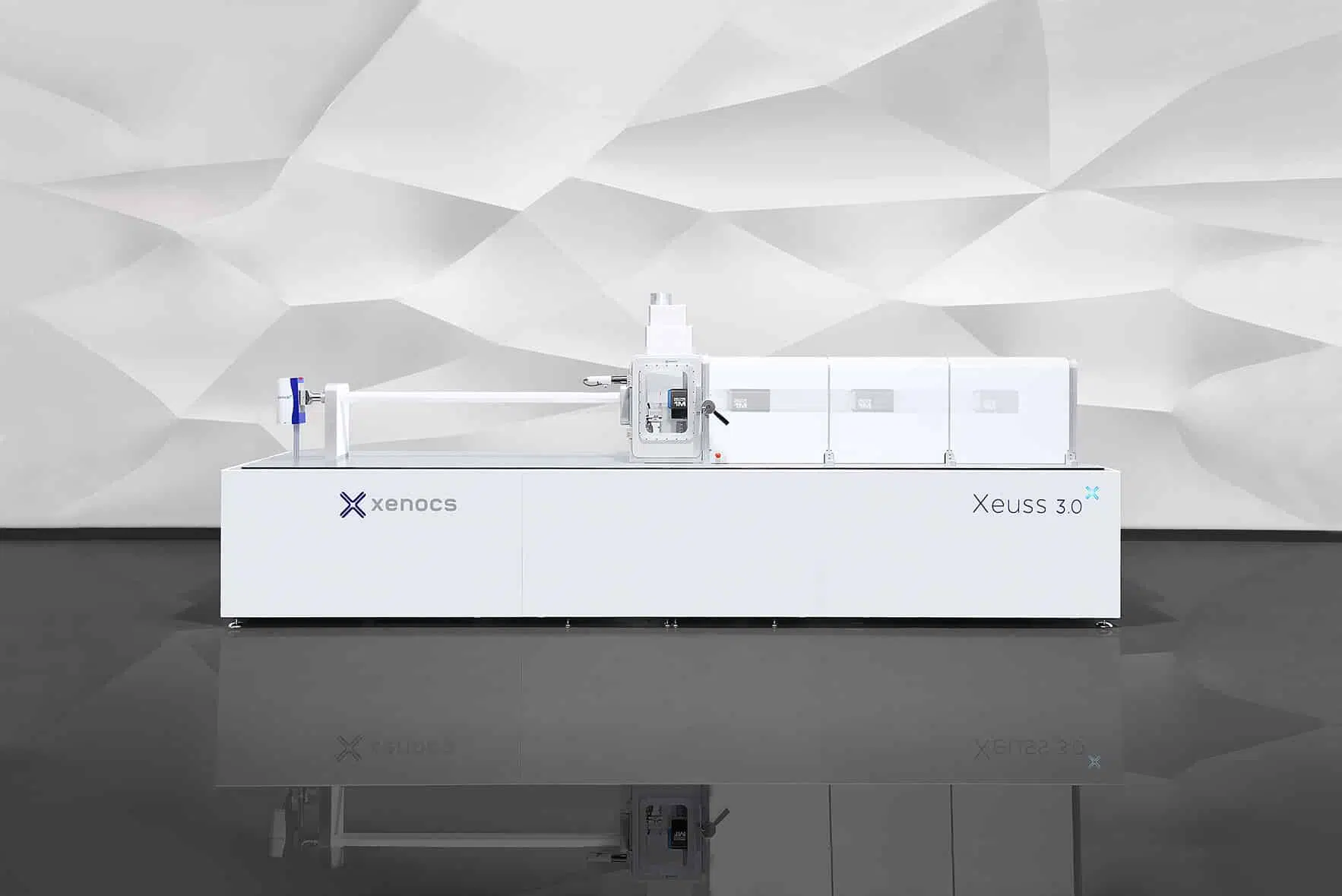Zhu, Guo-Dong; Yin, Yu-Rong; Li, Zhen-Nan; Qiu, Ya-Yu; Yi, Zhuan; Gao, Cong-Jie
Organic acids interacting with block copolymers have broadened the window that retains isoporous structures
Evaporation is significantly important for the preparation of isoporous membranes from self-assembly and non-solvent induced phase separation (SNIPS). Unfortunately, the time of solvent evaporation that retains isoporous structures is usually rather short, which causes many challenges to fabricate membranes with repeatable and controllable isoporous structures. In the current work, we…
Effect of side methyl from mixed diamine chain extenders on microphase separation and morphology of polyurethane fiber
You, Gexin; Wang, Jiaqi; Wang, Chunyan; Zhou, Xulin; Zhou, Xiuwen; Liu, Lina
Polyurethane fiber (PUF) can be used as self-adaptive material in the field of nuclear physics and its properties depended on the molecular structure. To explore the effect of side methyl on its degree of microphase separation (DPS) and morphology for PUF, ethanediamine and 1,2-propylene diamine with different molar ratio were…
Tailoring the Hydrophobicity of Mesoporous Organosilica for Protein Trapping and Supported Catalysis
Osta, Oriana; Bombled, Marianne; Partouche, David; Gallier, Florian; Lubin-Germain, Nadège; Brodie-Linder, Nancy; Alba-Simionesco, Christiane
We propose a method to enhance lysozyme trapping and supported-Copper catalysis when confined in organosilica materials. The direct synthesis presented here allows the control of the silica surface hydrophobicity by uniform introduction of methyl or phenyl groups. As a result, the lysozyme trapping is observed to be 3.2 times more…
Precise Self-Assembly of Nanoparticles into Ordered Nanoarchitectures Directed by Tobacco Mosaic Virus Coat Protein
Zhang, Jianting; Zhou, Kun; Zhang, Yejun; Du, Mingming; Wang, Qiangbin
Self-assembly guided by biological molecules is a promising approach for fabricating predesigned nanostructures. Protein is one such biomolecule possessing deterministic 3D crystal structure and peptide information, which acts as a good candidate for templating functional nanoparticles (fNPs). However, inadequate coordination efficacy during the establishment of interfacial interactions with fNPs…
Simultaneously enhancing of wear-resistant and mechanical properties of polyurethane composite based on the selective interaction of fluorinated graphene derivatives
He, Taijun; Wang, Guitu; Wang, Yixing; Liu, Yang; Lai, Wenchuan; Wang, Xu; Feng, Yiyu; Liu, Xiangyang
Simultaneously enhancing of wear-resistant and mechanical properties of the thermoplastic polyurethane (TPU) is important for its wider application. Herein, fluorinated graphene (FG) was proposed and respectively functionalized by two amine-terminated molecules: aliphatic poly (oxypropylene) diamine (D230) (compatible with soft segment (SS) of TPU), and aromatic phenylamine (PA) (compatible with…
Alginate-coating of artemisinin-loaded cochleates results in better control over gastro-intestinal release for effective oral delivery
Shuddhodana; Judeh, Zaher
Development of new drug delivery systems for effective delivery of poorly water-soluble drugs is important. We report the development of cochleate-based formulation for the oral administration of poorly water-soluble artemisinin (ART). Cochleates offer great potential as vehicles for the oral delivery of ART due to their high drug encapsulation and…
Hierarchical self-assembly of 3D lattices from polydisperse anisometric colloids
Luo, Binbin; Kim, Ahyoung; Smith, John W.; Ou, Zihao; Wu, Zixuan; Kim, Juyeong; Chen, Qian
Anisometric colloids—which have both nanometer and micrometer dimensions—combine features of their two constituent length scales. Here, using optical microscopy and modeling, the authors find that highly polydisperse anisometric colloids self-assemble into 3D, periodic lattices in a manner hardly inaccessible to nano- or micron-scale…
Topochemical polymerization of hierarchically ordered diacetylene monomers within the block copolymer domains
Krishnan, Deepthi; B, Amal Raj R.; Gowd, E. Bhoje
Integration of polymerizable small molecules within block copolymer based supramolecules provides a new strategy to generate functional materials. Herein we report hydrogen-bonding complexes of photopolymerizable 10,12-pentacosadyionic acid (PCDA) and polystyrene-block-poly(4-vinylpyridine) (PS-b-P4VP). We systematically investigate how annealing conditions affect the hierarchical ordering and…
How cyclic chain topology can reduce the crystallization rate of poly(3-hexylthiophene) and promote the formation of liquid crystalline phases in comparison with linear analogue chains
Maiz, Jon; Liu, Guoming; Ruipérez, Fernando; Delbosc, Nicolas; Coulembier, Olivier; Wang, Dujin; Müller, Alejandro J.
We have studied how cyclic topology affects the crystallization and morphology of π-conjugated poly(3-hexylthiophene) (P3HT) molecules by comparing linear and cyclic analogues for the first time, with three different chain lengths. We employ a range of experimental techniques including wide-angle X-ray scattering (WAXS), polarized light optical microscopy (PLOM), differential scanning…
A robust self-healing polyurethane elastomer: From H-bonds and stacking interactions to well-defined microphase morphology
Fan, Cheng-Jie; Huang, Zi-Chun; Li, Bei; Xiao, Wen-Xia; Zheng, En; Yang, Ke-Ke; Wang, Yu-Zhong
Self-healing materials have attracted considerable attention because of their improved safety, lifetime, energy efficiency and environmental impact. Supramolecular interactions have been extensively considered in the field of self-healing materials due to their excellent reversibility and sensitive responsiveness to environmental stimuli. However, development of a polymeric material with good…


































